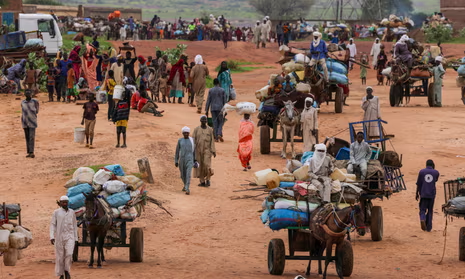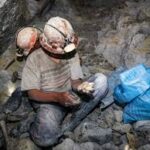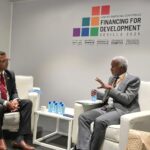Doctors Without Borders (MSF) has sounded a grave alarm over what it describes as “mass atrocities” and “ethnically targeted violence” in Sudan’s Darfur region, as the civil war between the Sudanese Armed Forces (SAF) and the Rapid Support Forces (RSF) reaches new levels of brutality. A year-long investigation by MSF, covering May 2024 to May 2025, paints a chilling picture of systematic violence, particularly against non-Arab ethnic groups, and raises fears of another genocide unfolding in real time.
The paramilitary RSF descendants of the notorious Janjaweed militias responsible for the 2003 Darfur genocide, is now tightening its grip on the region. After seizing Khartoum in March 2024, RSF forces have turned their full attention to North Darfur and have besieged El-Fasher, the last army-held stronghold in the region and home to hundreds of thousands of civilians, most of them internally displaced.
According to MSF’s emergency operations chief, Michel-Olivier Lacharité, people in El-Fasher are not just victims of indiscriminate warfare, but are being specifically targeted based on ethnicity. Testimonies collected by MSF reveal chilling threats by RSF fighters to “clean El-Fasher” of non-Arab communities particularly the Zaghawa people mirroring the ethnic slaughter of the Masalit community in West Darfur in 2023. That massacre, described by the U.S. government as “genocide,” left hundreds dead and thousands displaced.
MSF’s report, based on 80 firsthand interviews, documents a pattern of violence that includes mass killings, sexual violence, starvation tactics, abductions, looting, and attacks on hospitals and health workers. The RSF has also cut off critical humanitarian corridors, leaving El-Fasher’s population without access to food, water, or medicine. MSF was forced to suspend its operations in both El-Fasher and the nearby Zamzam displacement camp already ravaged by famine, after repeated security breaches and direct attacks.
UN Secretary-General António Guterres recently called for an urgent ceasefire to allow humanitarian access into the besieged city. However, ceasefires in Sudan’s civil war have largely failed to hold, with both sides accused of violating truces and continuing hostilities.
The humanitarian crisis in Sudan is now among the worst in the world. Over 13 million people have been displaced, and tens of thousands killed since the war erupted in April 2023. North Darfur alone has over one million people teetering on the brink of famine, according to the United Nations. Aid groups have warned that a full-scale assault on El-Fasher could result in a humanitarian catastrophe and possible genocide, if urgent international intervention is not secured.
The country remains deeply divided: the army controls much of the east, north, and central Sudan, while the RSF dominates most of Darfur and parts of the south. Attempts to negotiate a peace deal spearheaded by the U.S., African Union, and Gulf states have so far faltered, largely due to deep mistrust and the entrenchment of rival power bases.
With the world’s attention divided by multiple global crises, human rights groups and Sudanese civil society are calling for a renewed global focus on Darfur before another genocide unfolds. The MSF’s findings underscore the urgency of international action, not just for a ceasefire, but for accountability, humanitarian access, and the protection of ethnic communities facing extermination.














Leave a comment